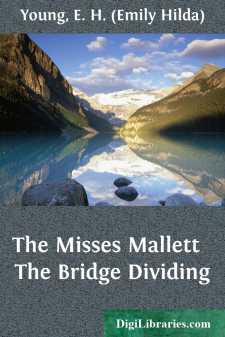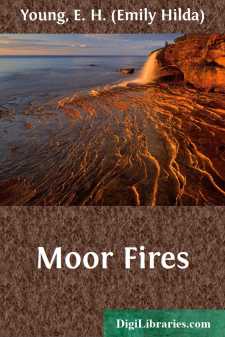Categories
- Antiques & Collectibles 13
- Architecture 36
- Art 48
- Bibles 22
- Biography & Autobiography 813
- Body, Mind & Spirit 142
- Business & Economics 28
- Children's Books 17
- Children's Fiction 14
- Computers 4
- Cooking 94
- Crafts & Hobbies 4
- Drama 346
- Education 46
- Family & Relationships 57
- Fiction 11829
- Games 19
- Gardening 17
- Health & Fitness 34
- History 1377
- House & Home 1
- Humor 147
- Juvenile Fiction 1873
- Juvenile Nonfiction 202
- Language Arts & Disciplines 88
- Law 16
- Literary Collections 686
- Literary Criticism 179
- Mathematics 13
- Medical 41
- Music 40
- Nature 179
- Non-Classifiable 1768
- Performing Arts 7
- Periodicals 1453
- Philosophy 64
- Photography 2
- Poetry 896
- Political Science 203
- Psychology 42
- Reference 154
- Religion 513
- Science 126
- Self-Help 84
- Social Science 81
- Sports & Recreation 34
- Study Aids 3
- Technology & Engineering 59
- Transportation 23
- Travel 463
- True Crime 29
E. H. (Emily Hilda) Young
Emily Hilda Young (1880–1949) was a British novelist best known for her finely detailed and psychologically insightful novels set in the early 20th century. Her works often explored the lives of women, moral dilemmas, and the social dynamics of family and community. Some of her notable novels include "Miss Mole," which won the James Tait Black Memorial Prize in 1930, and "William," both of which reflect her deep interest in character development. Young's novels, once popular, fell into relative obscurity but have since been rediscovered for their sharp wit and emotional depth.
Author's Books:
Sort by:
§ 1 On the high land overlooking the distant channel and the hills beyond it, the spring day, set in azure, was laced with gold and green. Gorse bushes flaunted their colour, larch trees hung out their tassels and celandines starred the bright green grass in an air which seemed palpably blue. It made a mist among the trees and poured itself into the ground as though to dye the earth from which...
more...
In the dusk of a spring evening, Helen Caniper walked on the long road from the town. Making nothing of the laden basket she carried, she went quickly until she drew level with the high fir-wood which stood like a barrier against any encroachment on the moor, then she looked back and saw lights darting out to mark the streets she had left behind, as though a fairy hand illuminated a giant...
more...



